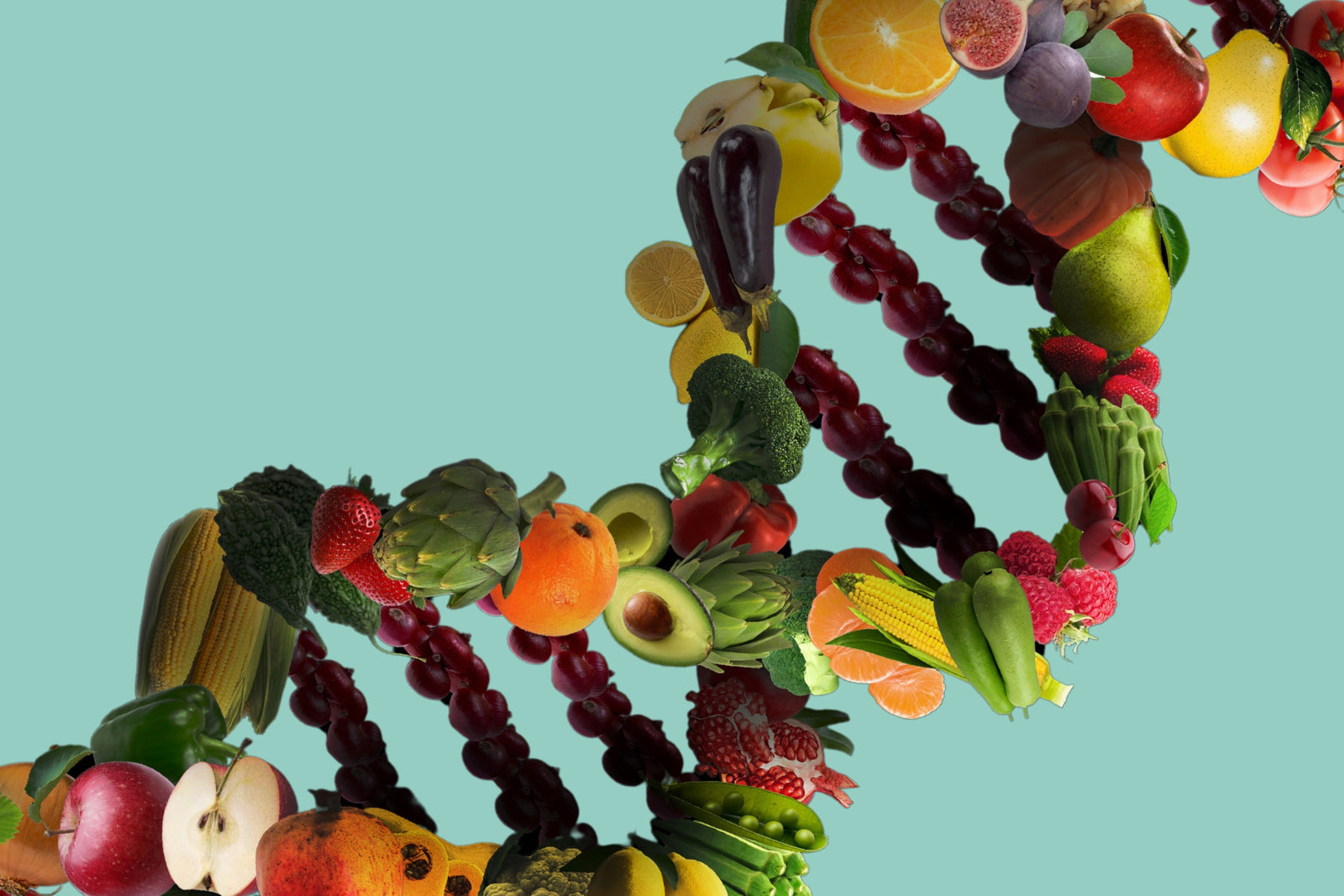How SLC23A1 and Vitamin C Affect Your Health
Vitamin C is an essential nutrient that supports immune function, collagen production, antioxidant protection, and iron absorption. Because the body cannot make Vitamin C, you must get it from food or supplements. The SLC23A1 gene encodes the SVCT1 transporter protein that helps absorb Vitamin C from the gut and redistribute it to tissues, including reabsorption in the kidney to preserve circulating levels. Variations in SLC23A1 can change how efficiently Vitamin C is transported and retained, which may influence blood levels and how your body uses this nutrient.
What this means for you
Genetic differences in SLC23A1 are one factor among many that affect Vitamin C status. Diet, smoking, stress, illness, certain medications, and overall health also play important roles. Even when genetic variants suggest more efficient Vitamin C handling, it is still important to follow general nutrition and lifestyle practices to maintain healthy levels.
Practical nutrition and lifestyle recommendations
- Prioritize whole-food sources of Vitamin C: citrus fruits, strawberries, kiwi, bell peppers, tomatoes, broccoli, Brussels sprouts, kale, and other cruciferous vegetables.
- Minimize heat and excess water during cooking to protect Vitamin C, which is water soluble and heat sensitive. Eat foods raw or lightly cooked when possible.
- Most adults need in the range of 75 to 90 mg of Vitamin C per day. Smokers typically require an additional 35 mg daily.
- Consider a daily multivitamin or Vitamin C supplement if dietary intake is low, you have increased needs, or you are unable to meet requirements through food alone. Avoid exceeding recommended upper limits without medical guidance.
- Stop smoking and reduce exposure to secondhand smoke because smoking depletes Vitamin C and increases oxidative stress.
- Manage chronic stress and get regular sleep, because stress and poor sleep can increase nutrient needs and oxidative damage.
- Maintain a balanced diet with adequate protein, iron, and other micronutrients to support collagen formation and overall recovery.
- Talk with your healthcare provider about blood testing if you have symptoms of deficiency, conditions that increase loss or need for Vitamin C, or if you are considering high-dose supplementation.
Genetic Interpretations
2 effect alleles (TT at rs6053005)
If you have the TT genotype for rs6053005, you carry two copies of the effect allele. This genotype is associated with higher plasma Vitamin C levels, suggesting your SVCT1 transporter may absorb or retain Vitamin C more efficiently.
What to do
- Continue to eat a variety of Vitamin C-rich foods: citrus, berries, bell peppers, broccoli, tomatoes, kiwi, and leafy greens.
- Most adults still need 75 to 90 mg daily. Even with efficient transport, aim to meet this target through food first.
- If you smoke, quit. Smokers need more Vitamin C despite genotype.
- A balanced diet that includes bioavailable iron, protein, and other vitamins supports collagen production and overall health.
- Consider routine diet tracking rather than routine high-dose supplements. If you are considering supplementation beyond standard doses, discuss this with your healthcare provider.
- Watch for symptoms of deficiency only if you have other risk factors such as malabsorption, severe restricted diet, or chronic illness. Ask your provider about plasma Vitamin C testing in those situations.
1 effect allele (CT at rs6053005)
If you have the CT genotype for rs6053005, you carry one copy of the effect allele. This genotype is associated with likely higher plasma Vitamin C levels compared to those without the variant, indicating somewhat more efficient Vitamin C handling by SVCT1.
What to do
- Meet daily needs primarily through whole foods: citrus fruits, strawberries, kiwi, bell peppers, broccoli, and dark leafy greens.
- Aim for the recommended 75 to 90 mg daily. Adjust upward by about 35 mg if you smoke.
- Preserve Vitamin C by favoring raw or lightly cooked preparations and avoiding long boiling times.
- Manage stress and sleep to reduce additional nutrient demands.
- Consider a modest supplement if you struggle to reach targets through diet, but avoid doses above recommended upper limits unless supervised by a healthcare provider.
- If you have conditions that reduce absorption or increase loss, ask your provider about monitoring plasma Vitamin C.
0 effect alleles (CC at rs6053005)
If you have the CC genotype for rs6053005, you carry two copies of the non-effect allele. This genotype is associated with typical Vitamin C transport and expected plasma levels via SVCT1 function.
What to do
- Focus on a daily variety of Vitamin C-rich foods, including citrus fruits, berries, bell peppers, cruciferous vegetables, tomatoes, and kiwi.
- Aim for 75 to 90 mg per day, and add 35 mg if you smoke.
- Preserve Vitamin C with gentle cooking methods and minimal water exposure when possible.
- Use supplements when dietary intake is inadequate or needs are increased, such as during illness, pregnancy, or recovery from surgery, but consult a provider for dosing guidance.
- Ask your healthcare provider about plasma Vitamin C testing if you have symptoms of deficiency, malabsorption issues, or other medical concerns that could affect nutrient status.
Supplements and testing considerations
- Low-dose Vitamin C supplements are generally safe for most people. Follow label directions and do not exceed upper limits without medical supervision.
- If you are considering higher-dose Vitamin C for a specific health reason, discuss risks and benefits with your healthcare provider.
- Blood testing for plasma Vitamin C can be useful for people with risk factors for deficiency, unexplained fatigue, poor wound healing, or malabsorption conditions. Your provider can order appropriate tests and interpret results in context.
Final notes and disclaimer
PlexusDx provides educational information about genetic predispositions related to Vitamin C transport and status. This content is for informational purposes only. PlexusDx does not provide medical advice. Always consult with your healthcare provider before making changes to your diet, supplements, or medical care, especially if you have health conditions, are pregnant or breastfeeding, or are taking medications.

Share:
Vitamin B12 | FUT2 (rs601338)
Vitamin C | SLC23A2 (rs6133175)